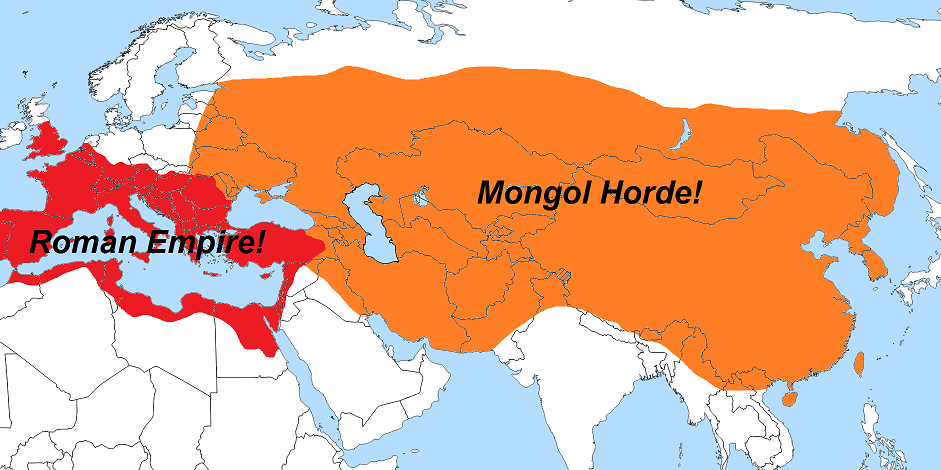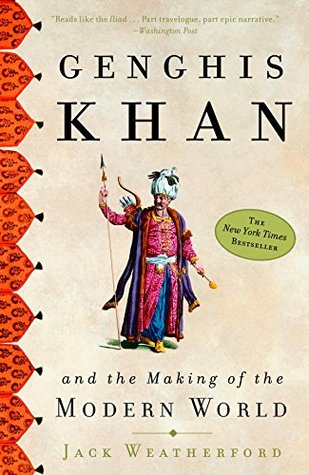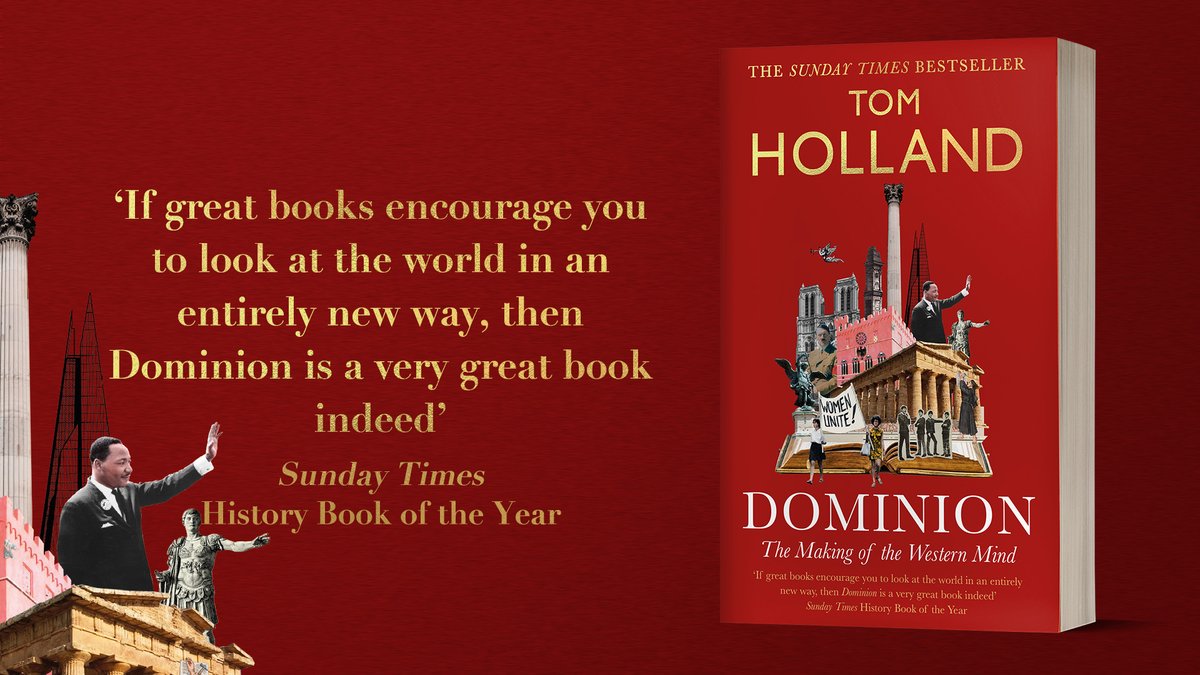
What comes to your mind when I mention the name, Genghis Khan? For me, it wasn’t much until now. The Empire he created became the largest and most dominant the world has ever known. It’s borders stretched from the Pacific Ocean to Germany. From Siberia in the North to Indonesia in the South. China, the Middle East and parts of India fell under its domains. On a modern map, some 30 countries would have bowed beneath the Spirit Banner of the great Temüjin. If Western geography is more helpful by comparison, Genghis Khan and his offspring’s conquest would have subsumed all the land from Alaska clear through to Brazil!

What further pushes the limits of credulity is that Temüjin was the illiterate son of a kidnapped and enslaved woman. His origins were that of a mere hunter-gatherer who lived in a tent. Daily survival was a going concern for this waif, especially when the tribe that kidnapped his mother abandoned her and her children after the death of his father. Temüjin, as a young boy, was reduced to living off of mice and rats to survive. It’s doubtful that there is a more remarkable rags to riches story human history.
Temüjin was the ultimate pragmatist. “Whatever works” was his master strategy to accomplish his mandate to rule the world. The eternal blue sky had spoken to him. The world needed leadership, and he was the one to lead. It is said of him, what he could not control he destroyed. This accurate depiction is observed early in his life. At the age of 12, he killed his 15-year-old stepbrother for being too controlling.
As you can imagine, the Mongolian Steppe was like the wild wild West on steroids. How could any sort world-conquering juggernaut come from what was mostly a gong show of constant tribal feuding? As Temüjin consolidated his power, he employed four measures to end the infighting.
- No More Stealing
- Stealing normal, even praised on the Steppe. It was the second most common way of obtaining a bride. Livestock was never safe. Temüjin ended these practices. To steal was to forfeit your life. Through him, the world’s most extensive “lost and found” was created. – “Finders keepers” had become a perspective that would bring down the wrath of the world’s most powerful man.
- Religious Freedom
- The Steppe people had embraced all the major religions of the world by the time of Temüjin. In an unprecedented move, he declared that all religions were valid and could be freely practiced within his domains. As long as they prayed for the Khan and were loyal to him. It would be 700 years before the West adopted religious freedom, and Islam still hasn’t.
- Share Wealth
- Looting was no longer a greedy, disorganized rush to acquire. In every conquest, all the wealth was systematically accounted for and equitably distributed among all the Mongolian people. Khan was extraordinarily generous to the widows of war that his conflicts created. Everyone would be provided for, especially the most vulnerable.
- Best Person for the Job gets the Job
- Nepotism has always been a problem. Not under Temüjin. Birthright meant nothing to him. He was absolutely committed to getting the most talented people into positions where they could be most successful. There was no longer any such thing as a “low born” person without the possibility of advancement.
With the “people of the felt tent” united. Temüjin began to conquer. In his conquests, he employed several strategies that enabled him to be wildly successful.
- Total War
- There were no rules. To win was the objective. Propaganda, deceit and terror were all fair play. Unlike Joseph Stalin of the 20th century who bragged about bleeding his armies, Khan refused to waste men, he didn’t believe in the “glory” of battle. There was no shame in retreat if it was needed. He used speed and firepower to overwhelm his enemies. He was always into new technology. He took advantage of stink bombs, flame throwers, gun powder and all manner of projectiles. Khan did not like close combat, he always preferred to kill at a distance. His was the 1st army to be 100% cavalry. The pace, range, ferocity and loyalty of his soldiers was unmatched. The Mongol horde was the original “Blitzkrieg.”
- Harvest the talent, do away with the rest
- The wealthy ruling elite was almost always slaughtered upon capture. Conquered peasants did not fare well either. Nomadic steppe people couldn’t appreciate the life of grain-eating sedentary farmers. They viewed them as cattle. As “animals”, these human herds were simply used up in the war effort. Untold numbers lost their lives filling in moats, drawing enemy fire or being worked to death. BUT, if you had a skill, the sky was the limit for advancement in the Empire. Linguists, priests, philosophers, metal workers, architects, etc., were welcomed and elevated.
- Commerce & Organization
- No one built more bridges than the Mongolians. They made rapid transit systems, and the success of their Empire was built on commerce. Conquered peoples were allowed to keep their traditions and religions and basic government structures. They had to send a tribute, of course, but they were invited to do business. The Mongolians killed pirates and thieves with ruthless efficiency. Under the protection of the Empire, local economies from Europe to Indonesia had a real opportunity to thrive.
The great Temüjin had no interest in the opulence that naturally comes with power and wealth. He continued to live in a tent, refusing to build a city for himself and “settle down.” He wore the same clothes and ate the same basic food as he always had. He genuinely cared for his people, and he had the kind of personality that inspired loyalty.
The bizarre story of Genghis Khans changing reputation.
Chaucer of the late 1300s in his Canterbury tails praises the qualities of this most remarkable leader. Nearly four centuries later, Voltaire absolutely vilifies him in his play, The Orphan of China. It turns out Voltaire was using Genghis as a euphemism to criticize his own king of France, but the reputation stuck in the West. Jack Weatherford thinks Western pride is the reason for the shift in perspective. The West came to dominate the world, but then there was a 150-year gap in the line of emerging dominance when they were absolutely destroyed by a horde of Asians. They could not abide second place, so a character assassination of the Mongolian people was needed. The pseudo-science of the 19th century proved to be the most effective weapon in accomplishing this goal. An observation was made that people with Downs syndrome, looked somewhat similar to Mongolian people. The men in white lab coats dived headlong down this rabbit hole and came out the other side with a stunning “scientific” discovery. At some point in their lineage, every person with mental retardation had acquired the faulty gene through the sexual savagery of these less than human monsters who plagued the globe in the 13th and 14th centuries. Indeed this is precisely where the term mongoloid came from.

How did it all end?
Temüjin’s offspring did not follow his example, they chose opulence, and embraced the sedentary lifestyle of the peoples they conquered. They also didn’t get along very well, and civil war was not as infrequent as it should have been. They also had to continue to conquer because the heart of the Mongolian Empire could only maintain it’s opulence through the loot of conquest. At some point, even the best armies will be stretched too thin. However, these are not the primary reasons for the collapse. The Plague ended the Mongolian Empire. Some estimates have 2/3 of the Chinese population succumbing to the dreaded black death. The numbers worldwide were not much better. Trade stopped as people isolated themselves. Mongolian leaders, vastly outnumbered by indigenous populations, had no way to defend themselves or enforce the law. With the economy collapsing, regional ethnic groups could see no benefit to remaining under the dominance of this foreign power. Piece by piece, the Empire broke apart.





One Response